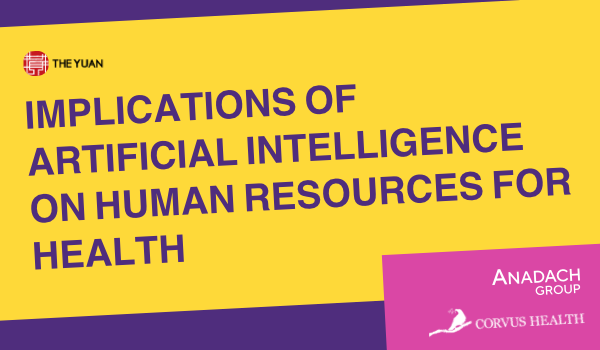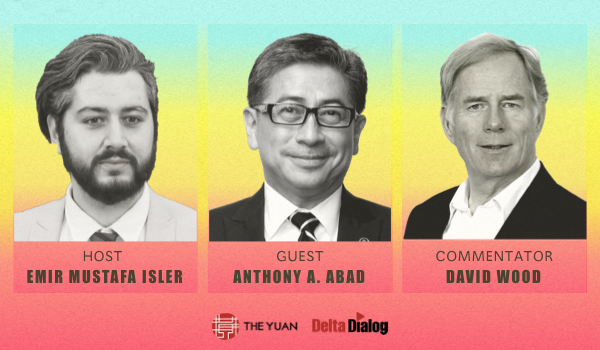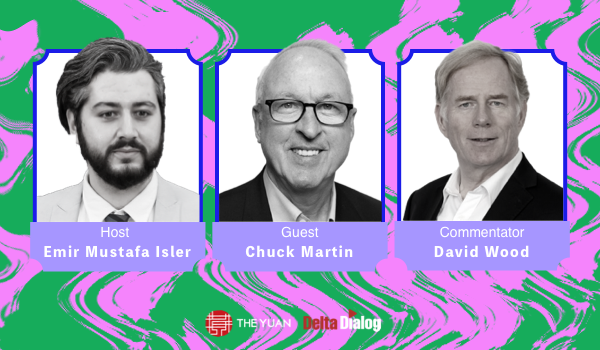
ALEXANDRIA, VIRGINIA/LAGOS, NIGERIA/HONG KONG - Healthcare demand is driven by a combination of forces: an aging population, increased gross domestic product/population, changing patient expectations, shifting lifestyle choices, and the never-ending cycle of innovation, to cite but a few factors.
Training of doctors and other healthcare workers is, however, an arduous, costly, and drawn-out affair, afflicted by many bottlenecks, among them ethical, legal, technical and regulatory issues, as well as a dearth of nursing professors and medical school tutors. Existing curriculums also fall short: Clinicians now also need training in business, communication, digitization, and negotiation, for systems to function.
Artificial intelligence (AI) stands poised to bridge these gaps, supply the growing demand, and grease all the wheels of the cumbersome healthcare machinery, supplanting its worn-out legacy systems. Ironically, countries with developing economies - e.g., in Africa - are sometimes streets ahead of their counterparts in the Global North in using digital technology in all aspects of medicine, including education, often due to their lack of legacy infrastructure. Thus, e.g., when faced with a life-or-death situation, a nurse in a remote setting without a specialist practitioner can thus gain support from AI in decision-making. Medical practitioners can also receive a swift digest of all literature on a particular medica`l topic or condition, with each entry rated for accuracy. AI’s diagnostic and predictive powers often also far outstrip those of humans.
For all its potential, notable possible downsides to AI+healthcare are bias, ethical and explainability considerations that undermine trust, and hallucinations - falsehoods AIs spout when they do not know an answer. Data breaches, privacy, and siloing are also areas of major concern.
On the regulatory front, the European Union’s AI Act is a step in the right direction that gets the ball rolling. All AI apps should be subject to pharmaceutical-style regulation.
Healthcare spending simply cannot keep up with rising costs, however, so demand for greater efficiency and reduced costs besets all health systems. AI’s ability to instantly take account of all relevant data points in the supply chain and decision-making process in a manner impossible with human intervention cuts these outlays, and short-circuits the information dispersal loop by providing expert care - previously the preserve of an elite cadre of highly-trained specialists - directly at the point of care. This will transform the relationship with primary care and the relationship consumers have with the healthcare system. Every person in a healthcare system will have a personal AI coach - a clinical gatekeeper - that will diagnose and direct them to the level of care they need, which will usher in a preventive approach, rather than a reactive one, e.g., by using incentives to nudge a smoker off the habit by tracking and rewarding behavior.
Exponential growth in GenAI in the last two quarters and, e.g., India’s wholesale national digital transformation augur for an entire ecosystem of startups piggybacking on the world’s most populous nation’s health stack.
Without major transformational change, healthcare regimes will struggle to remain equitable and efficient, while offering rising levels of access, especially in developing economies. Artificial intelligence (AI) holds the potential to and is revolutionizing healthcare. When a computer program performs a task or reasoning process usually associated with human intelligence, it does so all day without fatigue or error, while machine learning provides data-driven clinical decision support to physicians and other health workers - paving the way for improved service delivery and increased revenue. Deep learning, a subset of AI that spots patterns, uses algorithms and data to give automated insights to healthcare providers.
Simply put, AI is reinventing - and reinvigorating - modern healthcare via software that can predict, comprehend, learn, and act.
Given its transformative potential, to understand the significance or potential impact of AI on health services and outcomes is thus key from a global perspective, one that encompasses those of both developing and emerging economies.





 174 views
174 views






